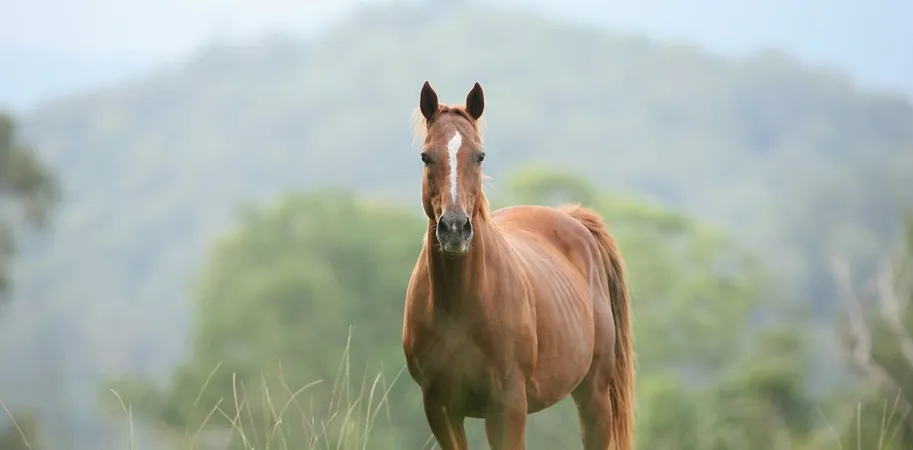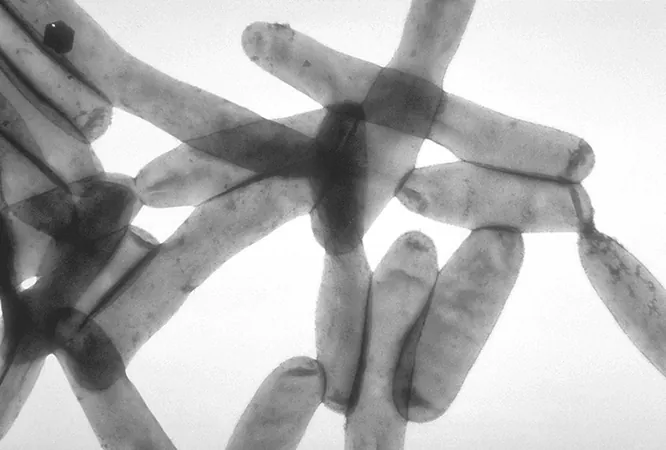
Is the Hendra Virus Back? What You Need to Know Following a Horse's Death in Queensland
2025-07-11
Author: Ming
A Deadly Reminder: Hendra Virus Claims a Life
This week, an unvaccinated horse tragically succumbed to the Hendra virus in southeast Queensland, marking the region's first reported case in three years. This incident follows a similar case in New South Wales back in July 2023, underlining the persistent threat this virus poses.
Understanding Hendra Virus: The Facts
But what exactly is the Hendra virus? First identified in 1994 in Brisbane, it's a highly pathogenic virus that leads to severe illness and even death in both horses and humans. Originating from the flying foxes (fruit bats) that roam Australia, Hendra is classified as a zoonotic virus, meaning it can pass from animals to humans.
Transmission: How Does Hendra Spread?
Hendra primarily spreads through close contact with infected horses, often via contaminated food or water sources tainted by bat saliva or droppings. While rare, horse-to-horse transmission can occur. Once infected, horses can rapidly deteriorate, showing symptoms like fever, breathing difficulties, and neurological signs, with death often occurring within 48 to 72 hours after the onset of symptoms.
The Risk to Humans
Unfortunately, the virus does pose a risk to humans, albeit a rare one. Since 1994, only seven cases have been confirmed, resulting in four fatalities. Most cases involved veterinarians or handlers who came into direct contact with infected horses. Importantly, there have been no documented cases of direct transmission from bats to humans or from person to person.
Protecting Your Horses: Prevention is Key
Given the severity of the virus, preventive measures for horses are crucial. Vaccination is strongly recommended, particularly in Queensland and northern New South Wales, where the virus is most prevalent. With a highly effective vaccine available since 2012, no vaccinated horses have contracted the virus. Additionally, keeping feed and water containers away from bat-heavy areas and ensuring regular stable cleaning are essential steps to mitigate risk.
What About Humans? Ensuring Safety in High-Risk Environments
Currently, there is no human vaccine for Hendra virus. Those working with horses should adhere to strict hygiene protocols, including using protective gear and practicing rigorous handwashing after handling horses, especially if illness is suspected.
Potential Changes Ahead: Climate Impact on Hendra Virus Risk
It's also worth noting that climate change and habitat destruction are altering flying fox behaviors, potentially elevating the risk of future outbreaks. As we move forward, vigilance and education about this deadly virus are essential for protecting both our equine friends and ourselves.





 Brasil (PT)
Brasil (PT)
 Canada (EN)
Canada (EN)
 Chile (ES)
Chile (ES)
 Česko (CS)
Česko (CS)
 대한민국 (KO)
대한민국 (KO)
 España (ES)
España (ES)
 France (FR)
France (FR)
 Hong Kong (EN)
Hong Kong (EN)
 Italia (IT)
Italia (IT)
 日本 (JA)
日本 (JA)
 Magyarország (HU)
Magyarország (HU)
 Norge (NO)
Norge (NO)
 Polska (PL)
Polska (PL)
 Schweiz (DE)
Schweiz (DE)
 Singapore (EN)
Singapore (EN)
 Sverige (SV)
Sverige (SV)
 Suomi (FI)
Suomi (FI)
 Türkiye (TR)
Türkiye (TR)
 الإمارات العربية المتحدة (AR)
الإمارات العربية المتحدة (AR)